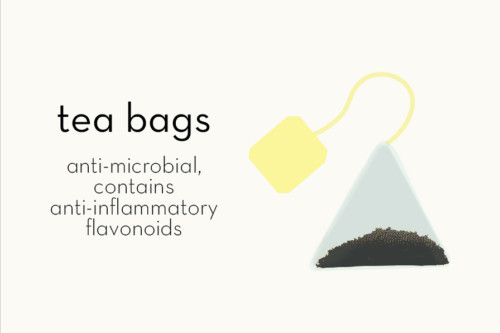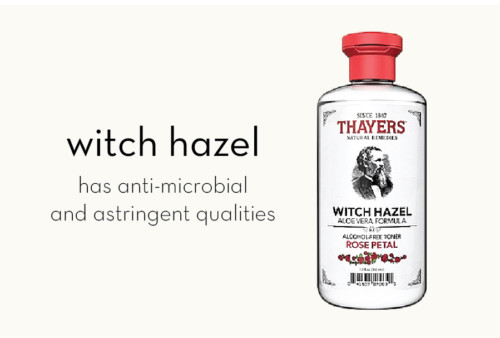
The Most Effective All-Natural Remedies for Mosquito Bites
Spending time outdoors in summer often comes at a price: welts of ridiculously itchy mosquito bites. As someone prone not only to mosquito bites but also to infected mosquito bites, I’ve tried just about every all-natural mosquito bite remedy out there. Below, we’ve compiled a list of five tried and true plant-based mosquito bite remedies to stop itching when it’s too late for mosquito repellant.
Apple Cider Vinegar
A cure-all for bodily ailments inside and out, unfiltered apple cider vinegar is also a powerhouse for mosquito bite relief (it’s always the first thing I grab when I notice a bite). As an antibacterial, it protects against infection and has the added bonus of being an antioxidant. To apply, soak a Q-tip in vinegar and dab over the bite morning, night, or whenever it feels itchy (just be sure to run the Q-tip under cold water before throwing it away, or toss it directly outside because apple cider vinegar tends to attract fruit flies). The astringency of the vinegar dries out the skin and helps to reduce itching.
Aloe Vera
Long revered for its skin-enhancing properties, aloe vera is an antibacterial, an antifungal, and it reduces inflammation, giving you a not only protection from infection but recovery from itching. If you have an aloe plant at home, you can simply cut off part of the frond and apply the sticky residue to the bite; pure aloe gel from the store is also effective. An added bonus: the taut film that aloe vera leaves behind when it dries serves as a tactile remind not to itch the bite.
Cold Teabags
Tea has long been an esteemed medicinal panacea, easing everything from stomach aches to allergies (and even brewing up the occasional political revolution). While tea is most often consumed, it can also provide relief when applied topically, as it contains flavonoids, which reduce inflammation and have antimicrobial effects. As the tea evaporates, it dries the skin out slightly, which can help alleviate itching as well. Brew a bag of your favorite blend (we recommend green tea for its antioxidant properties), then gently dab the cooled tea bag on the bite and enjoy your cup of tea– relaxation from the inside out.
Witch Hazel
Like tea, witch hazel is rich in tannins, a type of chemical that is antimicrobial (protecting skin from infections) as well as astringent (like apple cider vinegar, it dries out the skin to reduce itching). To use, just dab gently on the bite whenever it itches. Keep your witch hazel in the fridge for added relief as the cold can help take down swelling from the bite.
Fresh Basil
If you happen to be growing basil in your garden, you can put it to double use by using it to alleviate itching from bug bites. We’ve espoused the uses of basil in the past for its ability to diminish nasty headaches, and when ingested, it provides nutrients and amply antioxidant properties. Basil leaves also contain eugenol, a local antiseptic and anesthetic that can help allay itching. For rapid itch relief, take a few leaves, crush them in your palm, and apply the resulting salve to the bite. For longer-term storage, boil a half cup chopped basil leaves with two cups water. Let cool, store in the fridge, and apply to the bite as needed.






































